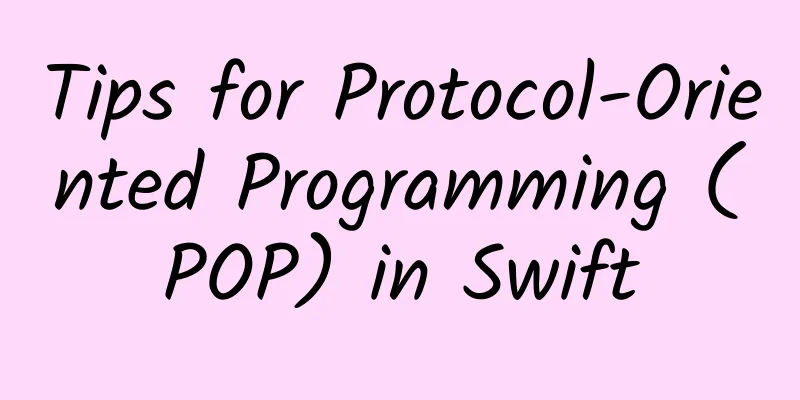What is a deeply customized operating system?

|
Domestic terminal manufacturers seem to like to customize operating systems, such as the early OMS system of China Mobile, Xiaomi's MIUI, Lenovo's Le OS, Alibaba's Aliyun operating system, etc. What is a deeply customized operating system? Why do domestic manufacturers like to do this? Customized operating systems are relative to native operating systems. Some open source operating systems, such as Linux and Android, allow terminal manufacturers to use them for free. Terminal manufacturers can make some modifications on their basis to achieve their own goals. According to the degree of modification to the operating system, it can be divided into general customization and deep customization. Customizing a set of your own UI interface is a general customization, which makes little change to the native system and is also easy to be compatible with native applications. Some manufacturers have made deeper modifications to the system. Mobile phone operating systems can be divided into kernel layer, middle layer and application layer. The system customized based on the Linux operating system has the kernel of the Linux system at the bottom layer, the middle layer contains the JAVA virtual machine named Dalvik, and the application layer is the various applications added after the modification of the native system. Each application runs on its own process and enjoys the exclusive instance allocated to it by the Dalvik virtual machine. The so-called deep customization generally refers to modifying the middle layer, that is, modifying some settings of the Dalvik virtual machine. For example, the OMS operating system integrates a large number of enhanced middleware to better support various applications, and is not a simple copy of the Android system. So why do manufacturers like to customize operating systems? Because the biggest feature of the operating system itself is not customization, but versatility. Domestic manufacturers are unable to develop a new operating system, or have tried to develop it but have not been successful enough, so they have to settle for the second best and choose a customized operating system to be compatible with a large number of existing applications on the market, and at the same time meet their own application integration needs through moderate modifications. This choice is reasonable and inevitable to a certain extent. In fact, Google's Android operating system is also a "deeply customized" operating system designed based on the kernel of the Linux open source operating system, but it has made relatively large changes, and the kernel has also been modified, so it can be said to be an independent operating system. Domestic manufacturers have also tried to make independent operating systems, such as Alibaba Cloud. Although the Linux system kernel is also used, Alibaba has developed its own virtual machine and made relatively large changes at the middleware level. This is also the reason why Alibaba claims that Alibaba Cloud OS is an independent operating system independent of Android. However, Alibaba Cloud OS is compatible with Android's Dalvik. That is why Google refuted that Alibaba Cloud OS was modified from Android OS and directly used Android's operating environment, framework and tools. It is not an independent operating system. Therefore, Google accused Alibaba Cloud OS of plagiarism and required Alibaba Cloud to be compatible with Android. In order to put pressure on Alibaba, Google said it would terminate its cooperation with Alibaba's Android products and related technology authorization. Alibaba had to postpone its original cooperation with Acer. Although Google did not explicitly oppose deep customization, it did not support it and made a clear requirement that it must pass the operating system compatibility test (CTS). After passing the CTS test, the Android trademark is allowed to be used on the device, which indicates that the device can be well compatible with a large number of applications in the software market. Domestic manufacturers who deeply customize based on Android must meet this requirement. Some manufacturers customize directly based on the Linux system, but generally also need to be compatible with Android system applications. On the one hand, it is convenient for developers to migrate applications and build an ecosystem. On the other hand, it also meets the "hard demand" of the versatility of the operating system, because who can prevent domestic manufacturers from developing a powerful independent operating system? The existence of a large number of customized operating systems has caused the fragmentation of Android. Google does not want manufacturers to do this. However, Android itself is an open source operating system, and Google still allows it to do so in order to expand its market share. This is also one of the reasons why the Android system is relatively chaotic. From the perspective of terminal manufacturers, deeply customized operating systems based on Android will be restricted by Google updates and must be synchronized with Android in terms of updates. Since Android updates very frequently and changes are difficult to predict, deeply customized systems also have certain risks. As a winner of Toutiao's Qingyun Plan and Baijiahao's Bai+ Plan, the 2019 Baidu Digital Author of the Year, the Baijiahao's Most Popular Author in the Technology Field, the 2019 Sogou Technology and Culture Author, and the 2021 Baijiahao Quarterly Influential Creator, he has won many awards, including the 2013 Sohu Best Industry Media Person, the 2015 China New Media Entrepreneurship Competition Beijing Third Place, the 2015 Guangmang Experience Award, the 2015 China New Media Entrepreneurship Competition Finals Third Place, and the 2018 Baidu Dynamic Annual Powerful Celebrity. |
<<: TDD and FDD in the eyes of technology geeks: 4G frequency is the lifeblood
>>: What is the situation with mobile phone production capacity?
Recommend
It’s called a ship, but where are the wheels of the ship?
Why do we always call ships "ships"? Do...
Where was the word "China" first written? On a bronze vessel over 3,000 years ago
1. Civilization and Writing At the end of the bar...
What is the role of Tag tags in SEO optimization and how to set them?
Tag (called "label" in Chinese) is a ne...
Beware! Posting photos like this is dangerous! You need to do these two things before sharing
Expert of this article: Wang Pingfan, PhD in Comp...
Well-known female star diagnosed with cancer! Don’t take the most “gentle” cancer lightly
According to media reports on November 6, 49-year...
A 10,000-word article deconstructs the logic of the e-commerce live streaming industry
Live broadcast, live broadcast, live broadcast......
Aston Martin and LeEco end electric car partnership, sources say
As of press time, LeEco Holdings' public rela...
Eating sugar will make you fat, eating less will make you depressed... Is it possible that "the food is still the same food, but tastes sweeter"?
As the saying goes, if you don't lose weight ...
A new problem for mankind: the "sin" and "punishment" of space activities
With the development of aerospace technology and ...
Why would a spider magnified 100 times be crushed by itself?
Today we are going to talk about a topic that is ...
How to quickly acquire seed users and detonate product potential?
In the Internet age, the efficiency of informatio...
Mantou New Media Operation Video Course
Course Description A millionaire trader will teac...
Inventory | 30 essential refined operation tools for marketing, operations, and products
Through refined operations , tapping into the con...
Google's Utopia: Which World Does the Future Belong to?
Recently, there were rumors that Google would ret...









